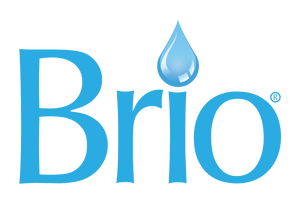Having access to clean, fresh drinking water is one of the most basic human needs.
Most communities in the United States have access to clean drinking water. However, some areas worry about the quality of their water. While generally safe, tap water can contain possible contaminants, ranging from lead and arsenic to synthetic chemical compounds like PFAS.
For example, researchers estimate that around 9.2 million lead pipes still service homes in the United States. For this reason, people are seeking simple, effective solutions to improve water quality. A home water purifier and filtration system are two options.
Which is superior?
This guide covers the difference between these two options so that you can invest in the best option for you.
How Do Home Water Purifiers and Water Filters Differ?

When comparing these two options side by side, there are several differences, with the main being what they remove from water and how.
Both of these options clean your drinking water. However, water purification systems can eliminate certain elements from water that a water filter cannot. While slightly more complex, for the most part, sediment, carbon, and combination water filters remove most impurities and contaminants (depending on their design) — but not viruses. Water purifiers do remove viruses. The one exception is ultrafiltration filters, which can remove viruses. For example, the Brio 4-Stage Filter Kit has a sediment filter followed by a pre-carbon filter (to remove chlorine, VOCs, etc.). Next is an ultrafiltration filter (targeting bacteria and viruses) and then a post-carbon filter (to reduce residual taste and impurity). There are also 3-stage ultrafiltration filters available.
While filters are typically more affordable and easier to install, water purifiers require less frequent maintenance.
To recap:
• Carbon and sediment water filters are designed to remove contaminants and impurities like rust, dust, chlorine, and VOCs.
• Water purifiers take this process one step further. They also eliminate potentially harmful microorganisms and viruses. Ultrafiltration filters are the exception, as discussed above. Unlike standard carbon or sediment filters, this type of water filter can remove viruses and bacteria.
• Both are effective options for improving drinking water. Each offers pros and cons.
Water Filter Pros and Cons

Water filters are often best for smaller households, apartments, and offices. Since you can install a water filter yourself, it’s a popular option for many households — they are also affordable. This solution does improve the smell, taste, and overall quality of drinking water. In this case, “water filter” refers to carbon and sediment filters only.
|
Pros |
Cons |
|
Generally easy to install |
Doesn’t target viruses or bacteria (unless you invest in an ultrafiltration water filter) |
|
Affordable, customizable options |
Requires regular maintenance |
|
Removes sediments, lead, chlorine, etc. |
Can miss some chemicals |
Water Purifier Pros and Cons

Larger households or those with high water usage may opt for a water purifier. This option is often best for those living in areas that have water contamination concerns or those seeking a whole-house solution. These systems lean on technologies and processes like ultraviolet light and reverse osmosis (RO).
|
Pros |
Cons |
|
Can remove viruses |
Tend to be more expensive |
|
Long-lasting |
More complex installation process |
|
Lower maintenance |
Requires access to electricity |
What Options Are Available?

For water filters, you have many options — and not all are designed specifically with drinking in mind.
• Shower water filters: Why expose your hair and skin to contaminants like chlorine and heavy metals when there is an easy solution? Check out this 15-stage high-output shower filter.
• Countertop water filters: This option combines convenience and the benefits of filtration. Check out bottleless countertop coolers to compare models.
• Undersink systems: For those who want to keep their counter space clear, undersink systems are an excellent option. There are undersink filtration options for every need and budget — including those with an RO membrane to further purify your water.
• Whole-house systems: If you want a whole-house system installed, there are options that offer both filtration and purification functionalities. These systems are often specialized, focusing on specific goals — like heavy metal removal, anti-scale, or iron removal. If you want UV technology at a certain tap, you can easily add ultraviolet light technology to any whole-house system.
What Are the Best Water Filters?
Whether you’re leaning toward more comprehensive water purification systems or are looking for a solution to a more specific issue like high chlorine levels, there are many filtration options. The best for you will depend on several variables, such as the following.
• Water quality: Do you know what contaminants are in your water? Here is how to test your water.
• Size: Do you want something compact in your home or office?
• Cost: What is your budget — consider installation and maintenance, too.
Knowing what is in your water will help you navigate this process so that you can find the perfect solution for your goals and requirements. Discuss your options with the Brio team. Ask about the various stages of filtration and what you aim to achieve with your new system.
Brio Can Help

Browse Brio’s collection of filter systems, ranging from whole-home solutions to long-lasting UV protection systems. There is an option for everyone, regardless of style preferences, budget, or objective.
Experience the difference a water filter or water purification system can make — Brio is here to answer any questions!




